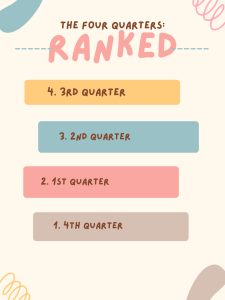Pledge Creates Controversy
January 24, 2017
The recitation of the Pledge of Allegiance in public schools, mandated by federal law since the 1940’s, has sparked controversy time and time again. Limiting the Pledge of Allegiance to middle and high schoolers would allow children to form their own opinions and take part in the Pledge when they can form arguments about why they do or do not want to do so. Allowing children to make these conscious efforts to affirm their faith in America is a better way to encourage patriotism than training them to recite the Pledge like robots.
Arguments against the Pledge include the belief that children should not be indoctrinated with beliefs they cannot understand. Additionally, opponents to the everyday use of the Pledge argue that the phrase “under God” should not be included in the morning announcements at public schools.
Students should know that they are not required to say the Pledge at all, which would allow them to make a conscious decision to do so. The current practice of mindlessly reciting the Pledge every morning does not encourage patriotism; it is rather something to be endured both by teachers and by students.
Supporters of the pledge encourage the patriotism inherent in the Pledge’s wording, and often do not acknowledge the existence of a problem with the phrase, “under God.” In fact, some even consider it a benefit to the Pledge.
America’s founding principles of freedom and self-expression lend themselves to both sides of the argument. On one hand, anyone should be allowed to say whatever they want to say, whenever they want to say it, as long as it does not conflict with the well-being of others. On the other hand, no one can be forced to say something they do not want to say.
The First Amendment guarantees the right to free speech, which allows students to remain silent as a form of self-expression. Furthermore, the Second Amendment forbids Congress from passing any acts that infringe upon freedom of religion, as the 1954 addition of “under God” clearly did. Christians, of course, see no problem with pledging allegiance to a nation “under God,” but Hindus, Buddhists, atheists, and countless other religious denominations are made outcast by the wording.
The United States government does not have the right to openly advocate a single ideology in the Pledge of Allegiance. The current practice of allowing students to omit “under God” is not enough, and not all schools even notify their students this option. Of course, the official policy is that no one has to say the Pledge, but if no one explains that to a kindergartener, they are going to assume that when everyone else stands and recites the Pledge, they have to, too.
The government needs to make the Pledge optional for schools, as well as students, and elementary schools should be left out altogether. Five-year-olds are too young and impressionable to listen to the Pledge of Allegiance every day and not feel pressure to mumble along with their classmates. This indoctrination of America’s youth has to stop. Americans who do not agree with the Pledge’s wording do not feel patriotic when they must recite it; they feel smothered.
When people make a conscious decision to do something, they are much more dedicated to that thing than they would be if they had just been told to do it. Allowing American children to make their own conclusions about the Pledge would provide future Americans with a more informed sense of national pride.







